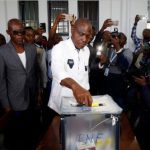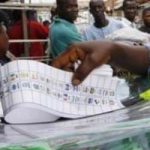The government of the Democratic Republic of Congo (DRC) has rejected opposition calls for a re-run of disputed elections, as the main observer mission reported “numerous irregularities” that could undermine some results.
Provisional results from the general election on December 20th show President Felix Tshisekedi with a commanding advantage, but his opponents have urged that they be invalidated, claiming major difficulties with the vote roll-out and tabulation.
The conflict threatens to destabilize Congo, which is already dealing with a security problem in the east.
The Democratic Republic of the Congo is the world’s leading producer of cobalt and other industrial minerals and metals.
The independent joint vote-monitoring mission of Congo’s powerful Catholic Church and its Protestant Church said it received 5,402 reports of incidents at polling stations, more than 60% of which disrupted voting, in a new report on the presidential and legislative elections based on feedback from thousands of observers.
In particular, it questioned the legality of the CENI election commission’s decision to extend some voting beyond 20th December and reported that voting was not wrapped up fully until 27th December.
The team of Moise Katumbi, one of Tshisekedi’s main challengers, has ruled out using legal channels to contest results, asserting that state institutions were committed to tipping the vote in the president’s favour. The CENI denies this.
He and other opposition heavyweights have called for a re-run, but government spokesperson Patrick Muyaya said on Thursday the opposition should wait until full results are published and challenge them in the courts if necessary.
He said the government was committed to a fair and transparent election process and dismissed Katumbi’s threat to hold further protests across the country, after police forcibly broke up a banned election march on Wednesday.
It has so far processed the results of 46,422 polling stations out of 75,969, according to its latest tally.
In addition to the election day issues, the opposition and independent observers say the CENI is failing to follow correct procedure for the tabulation and publishing of results.
In its report, the CENCO-ECC mission urged the CENI only to publish results based on correctly consolidated tallies from local centres.














